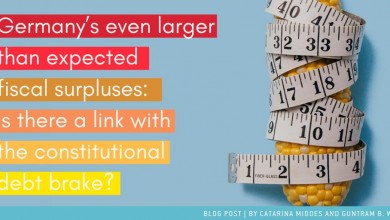Guntram Wolff welcomes Bruegel affiliate fellow Silvia Merler to evaluate the Italian government’s planned budget for 2019, in this Director’s Cut of ‘The Sound of Economics’
Six months after its election, Italy’s coalition government reached an agreement on public spending.
The key tenets of its first budget include a spending increase that will drive the budget deficit to 2.4% of GDP, tax cuts, a proposal for a minimal income for the unemployed, as well as cancellation of the plans to increase retirement ages.
Though the new deficit budget fits into the EU’s limit of 3%, Italy’s debt of €2.3 trillion makes for a difficult case to increase spending. The news comes as a blow for the finance minister Giovanni Tria, who pushed for a more fiscally responsible budget, trying to limit budget deficit to 1.6% of GDP. The decision also received disapproval from Brussels, with EU Economics Commissioner Pierre Moscovici criticising Italy for “flouting the rules” and disregarding its large debt.
To discuss the potential consequences, Guntram Wolff welcomes Bruegel affiliate fellow Silvia Merler to this Director’s Cut of ‘The Sound of Economics’.


